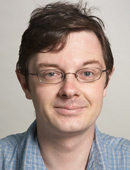Mechanisms regulating stem cell function in
health and disease
Our research interest lies in understanding the mechanisms regulating stem cell
function in health and disease with the goal of facilitating the development of
novel therapeutic strategies. A major focus of our research is to understand
HSC development, fate decisions, expansion, and their use in cell and gene
therapy.
Hematopoietic stem cell transplantation
(HSCT) is a highly utilized therapy for the treatment of a wide range of
heritable and acquired disorders of the blood and immune system. The majority
of HSCTs use donor allogeneic cells with matching haplotypes to avoid graft
versus host disease as well as graft rejection. However, there is a scarcity of
donor product for a variety of ethnic groups with rare haplotypes. Thus, the
therapeutic potential of HSCs could be significantly broadened by methods that
would either enable the ex vivo expansion of bona fide HSCs or the generation
of HSCs de novo by reprogramming adult somatic cells. In collaboration with Dr.
Ronald Hoffman we are exploring the mechanisms by which human HSCs can be
expanded ex vivo without losing their functional properties and to improve,
commercialize and bring to the bedside a cellular expansion
protocol that utilizes valproic acid. This approach is
currently being evaluated in a clinical phase I trial (NCT03885947). Ongoing pre-clinical
research deals with process and product improvement and cryopreservation of the
expanded product with optimal retention of transplantation functionality.
Other projects revolve
around 1) understanding the mechanisms of reprogramming somatic cells into
functional hematopoietic stem and progenitor cells, 2) refining/improving the
process, so that the generated cells will be capable of sustaining in vivo
hematopoiesis, 3) developing this hematopoietic reprogramming technology into a
clinical product for treating blood disorders, and 4) explore ex vivo HSC
expansion with and for gene therapy purposes. Another recent project is focused
on unraveling the cellular and molecular events underlying human HSC
engraftment and reconstitution, which will provide critical direct insights into basic human HSC biology,
specifically the dynamic processes and balance of self-renewal, quiescence and
cell fate decisions in vivo upon HSC transplantation.
Additional,
collaborative projects involve derivation of induced
pluripotent stem cells (iPSCs) from clinically healthy individuals and patients
with specific syndromes with a focus on familial cancers and cardiovascular
disorders, and their use to understand the etiology of disease, to identify novel
therapeutic targets, to evaluate existing drugs, the molecular underpinnings of
variability in drug responses of individuals, all with the indent to develop precise and personalized treatments
for patients.
